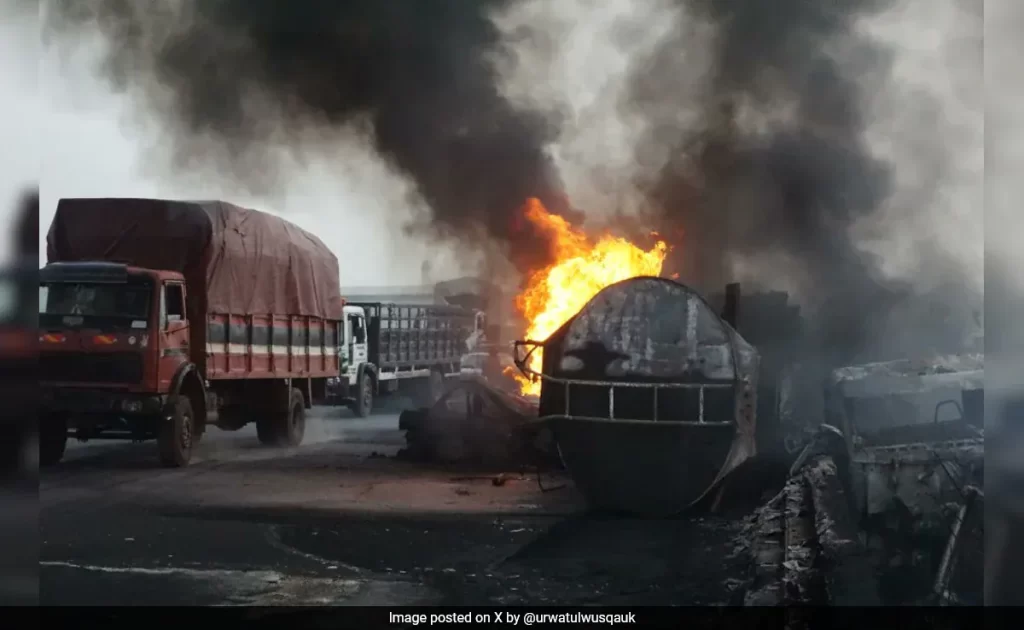A devastating fuel tanker explosion in northwestern Nigeria has resulted in the deaths of over 100 people and left 50 others injured, local emergency services reported on Wednesday. The tragedy occurred in Majiya town, Jigawa state, as residents attempted to collect fuel from an overturned gasoline tanker.

Dr. Haruna Mairiga, head of the Jigawa State Emergency Management Agency, provided grim details to The Associated Press, stating that 97 people were “burned to ashes” at the scene, while eight others succumbed to their injuries at the hospital. The accident took place around midnight when the tanker driver lost control of the vehicle on a highway, according to local police spokesperson Lawan Adam.
The incident underscores a recurring and deadly problem in Nigeria, Africa’s most populous nation, where traffic regulations are often loosely enforced, and alternatives for transporting fuel, such as an efficient railway system, are lacking. The practice of salvaging fuel from accident sites has become increasingly common amid soaring fuel prices, which have tripled since the Nigerian government ended costly gas subsidies last year.

Eyewitness accounts paint a harrowing picture of the disaster. Sani Umar, a local resident, told Channels Television, “People were running in all directions, screaming for help. The fire spread so quickly that many couldn’t escape.” Videos purportedly from the scene showed a massive inferno engulfing the area, with what appeared to be bodies scattered around.
The tragedy has plunged Majiya town into mourning, with locals conducting mass burials for the victims, many of whom were burned beyond recognition. Dr. Mairiga lamented the delayed response of emergency services, which arrived several hours after the accident. “If they knew about the danger, they wouldn’t have gone to fetch the fuel,” he said, highlighting the desperate economic circumstances that drive such risky behavior.

State Police Commissioner Ahmadu Abdullahi described the incident as “a heartbreaking moment for us all,” reflecting the shock and sorrow felt across the community and the nation.
This catastrophe is the latest in a series of similar incidents in Nigeria. The country’s inadequate infrastructure, combined with economic pressures, creates a perfect storm for such tragedies. The practice of scooping fuel from accident sites, while incredibly dangerous, is often seen as a necessary risk by many Nigerians struggling with fuel scarcity and high prices.

The incident has reignited calls for improved road safety measures, stricter enforcement of traffic regulations, and the development of alternative transportation infrastructure. It also highlights the urgent need for addressing the economic hardships that drive citizens to take such extreme risks.



